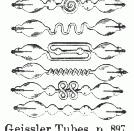In the article, In Praise of Cultural Imperialism, David Rothkopf illustrates a progressive new world order where information is the new global currency and the United States, "the indispensable nation," is the bank. In his article, Rothkopf contrasts the victimizing tendencies of 'cultural barriers', which are the unmistakably causing ethnic, religious, ideological, tribal or nationalistic conflicts, to the uniting tendencies of western globalization. Rothkopf predicts the inevitable merging of all the cultures under the common benefits originating from globalization once "they have realized that to compete in the global marketplace they must conform to the culture of that marketplace" The United States whose policies are evidently "the best model for the future" will lead this next step in civilization's evolution, all the while making sure that "if common values are being developed, they be the values with which Americans are comfortable." Rothkopf further states that it is in the US's best interest "to encourage the development of a world in which the fault lines separating nations are bridged by shared interest" ultimately leading to a more peaceful and tolerant future: "Globalization is a vital step toward both a more stable world and better lives for the people in it."
Rothkopf, the former Deputy Undersecretary of the Commerce Department under the Clinton Administration and now the president of an international advisory firm, is also an adjunct professor of international and public affairs at Columbia University. Consequently, his views clearly demonstrate a pro-American capitalist's stance on the issues pertaining to American economics, cultural imperialism and foreign policy. In his article, Rothkopf describes the power of culture and its influence over this new age global environment, with its power to "bind and to divide in a time when the tensions between integration and separation tug at every issue that is relevant to international...


